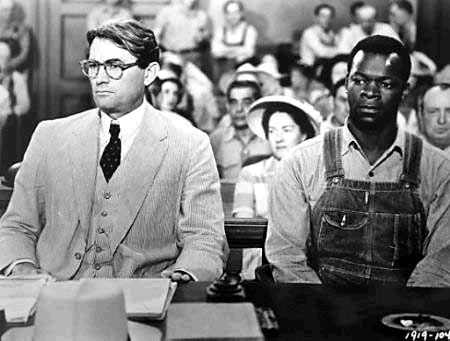The one thing that doesn’t abide by majority rule is a person’s conscience.” – To Kill A Mocking Bird
If you go to school in the United States, To Kill A Mockingbird was part of school. My mom’s generation saw Gregory Peck as the heroic lawyer, Atticus Finch, who was more concerned about justice than popularity. For a student my age the book came with a shock: “nice” people used to be openly racist. For my children, it was a chance to discuss institutional racism, open and hidden.
If my Twitter feed is any indication, open racism is not dead. We know that hidden racism also still hurts the lives of many Americans.
Why don’t you kill a mockingbird when you go hunting? You cannot eat them, they harm nothing, and they give us beautiful music. Our conscience is like the mocking bird: it isn’t practical, it harms nothing, and it creates beautiful music in our soul. God has given people a conscience and while educatio n or bad parenting can warp it over time, the truth will prevail.
n or bad parenting can warp it over time, the truth will prevail.
We want decadence, but we need virtue. We want injustice when it will helps us, but we pray for justice with mercy.
American segregation was a “peculiar” institution, as was Southern slavery because Christian morality in the rest of Christendom had long rejected the justification for slavery or racism. Racism is incompatible with a faith that says all people are brothers and sisters united in Christ. Of course, all forms of hate are incompatible with Christianity, but that does not mean that individual Christians cannot hate.
American culture seared white Christian consciences with pseudo-science that said some races were superior to other races. American religion warped Christianity to take an idea that did not even exist at the time the Scriptures were written, race, and then forced racism into the Bible. We were commanded by Jesus to love one another, but white Christians joined the Klan and inflicted terrorism on black Christians.
This evil of the majority might have gone on forever if it were not for books like To Kill a Mockingbird and brave African-Americans who would not tolerate the terror, the torment, and the untruths. Douglass was more eloquent than any racist. Booker Washington worked harder and more patiently to educate thousands than those who despised him. DuBois was more brilliant than his critics and Langston Hughes taught America his poetry.
The list is endless.
The white conscience may have been seared in many people, but men and women of color rose up with the pure conscience formed by the Word of God, hymnody, and powerful testimony. Nothing was more powerful than the conscience of the enslaved, the newly freedman, and the decent working men and women who made segregation look as monstrous as it was.
The prime defect of To Kill a Mockingbird was always the failure to recognize this deep truth. The white Christian conscience in the South was saved by the faithful, brave, black witness. Atticus Finch could only become aware of evil because men and women of color refused to be what they were “supposed” to be.
The consciences of millions of African Americans were more powerful than the majority. If a few white folk, a Scout here or there, were awakened and an Atticus did the right thing at last, it was because the consciences of the minority had redeemed them at last.











